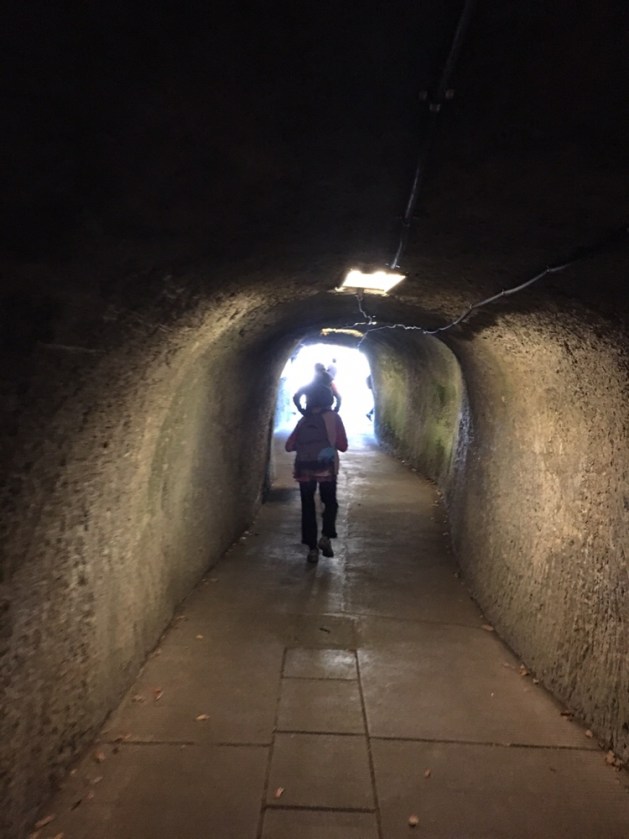A neighbor friend told me about a very special Temple. Or perhaps a more appropriate name is the “The Mecca of the Lucky Cat” – The official name is the Gotokuji Temple and it is known casually as the Lucky Cat Temple.
My research about Gotokuji Temple informed me of the supposed origin of the Maneki Neko or Lucky Cat. Legend holds the maneki neko originated during the Edo period.
Important side note: My research for various things keeps referring to the Edo Period. Being a Science enthusiast and not so much a history buff, I decided to research the Edo Period a little bit. The cliff note version of the Edo Period: 1603-1868. During this time there was economic growth, strict social order, an isolated foreign policy, stable population and prevalent arts and entertainment.
Back to our story – A feudal Lord from Hakone was passing the temple in Edo (now Tokyo) when a dangerous thunderstorm rolled through the area. Seeking shelter, the Lord paused under a tree outside the temple. While he was huddled under the tree, a cat beckoned him into the temple. Curious and in dire need of safety, the Lord followed the cat into the temple. It was while he was seeking shelter and visiting the temple, the Lord made friends with the priest of the temple. Together they watched the tree he was huddled under be struck by lightning. Realizing the cat saved his life, the Lord was overcome with gratitude for the cat. He dedicated funds and time to rebuild the temple. Eventually, he was able to claim the temple as his family temple and it became Gotokuji. As the legend was passed through generations, people began to visit the Gotokuji with maneki neko figurines as an offering for their gratitude when they experienced good fortune.
Gotokuji is located in the quiet Setagaya Ward of Tokyo, away from the hustle and the bustle of the city. Dina agreed to join me on this excursion to visit Gotokuji Temple. It took us about an hour and a half to get to the temple on the train and then another 15 minutes to walk from the train station. It was well worth the journey. Just me enjoying a rest along the way.

Despite being a bit later in the fall season, the leaves were spectacular!

Entrance Gate






Incense burner
One the the beautiful features of the temple was the large pagoda.





The obvious feature was the maneki neko shrine. They were arranged in a beautiful collection. Absolutely, adorable.



The maneki neko! The Japanese Maple!


A few close up pictures.






Some had writing & faces!


This one might be my favorite. The maneki neko with a maneki neko balanced on his head!!

After our obligatory selfie…

we pulled ourselves away from the maneki neko shrine and ventured around the temple grounds.
The cemetery was the biggest one I’ve ever seen and not on a hill!



 The prayer walls were super cute as well! Unfortunately, they were sold out of the prayer plaques! At a temple!! Seriously!?! Guess that means I will need to go back when you come visit! Yay!
The prayer walls were super cute as well! Unfortunately, they were sold out of the prayer plaques! At a temple!! Seriously!?! Guess that means I will need to go back when you come visit! Yay!





Eventually, we made our way to the “gift store” for a temple stamp and a maneki neko. I love my new maneki neko. He is a pretty good size and only a size 7. They had up to the size 10 which are the really big ones in the pictures.
Another tourist shot of us!

We both bought a smaller maneki neko to contribute to the shrine. We are holding them in the picture. I wrote a prayer on mine for peace, happiness and love. The one I placed is the center of the three at the bottom.

A few more pictures of the shrine and temple as we were leaving.








Here the origin of the maneki neko according to the information sheet given to me when my temple book was stamped, it is a story about a Monk and a waving cat. Still during the Edo period, the poor Monk could barely live on the small income he received at the temple. His residence was a shabby hut on the temple premises. He had a cat who he cared for like a child and shared what little food he had with it. One day he told the cat, “if you are grateful to me, bring some fortune to the temple.” Several months later, the monk was surprised to see 5 samurai warriors outside the temple. The monk questioned the warriors and they stated they were passing the temple and saw the cat in front of the gate waving to them. They were curious and decided to stop and seek rest. The monk offered them tea and the warriors rested. A little while later, a dangerous thunderstorm rolled through the area. It was during this time, the monk was able to preach “Sannei-inga-no-hou” (past, present and future reasoning sermons). The samurai were intrigued by the sermon and one was immediately converted and were convinced the cat led them to the monk to follow Buddha’s will. The samurais returned home and donated rice fields and crop lands to help make the temple grand like it is today. The good fortune brought to the temple is contributed to the cat. When the original cat passed, the grave was blessed by the monk. The maneki neko has become a symbol of household serenity, business prosperity and fulfillment of wishes.
After we explored the temple, we were ready for lunch. Ramen!
























































































































































































